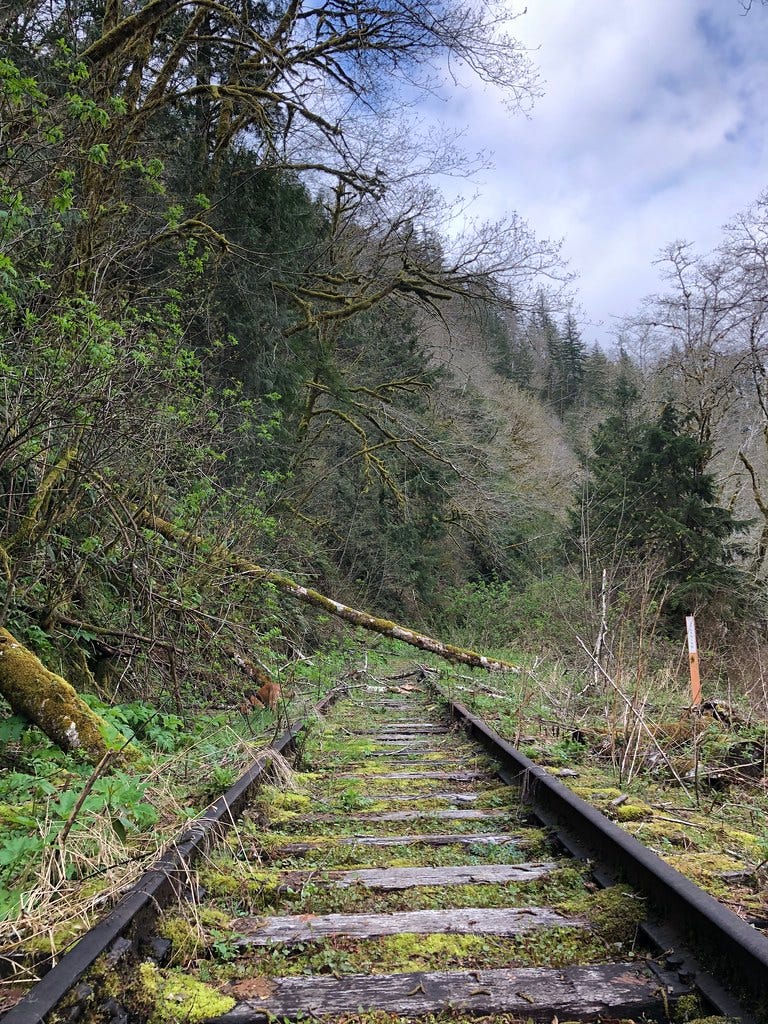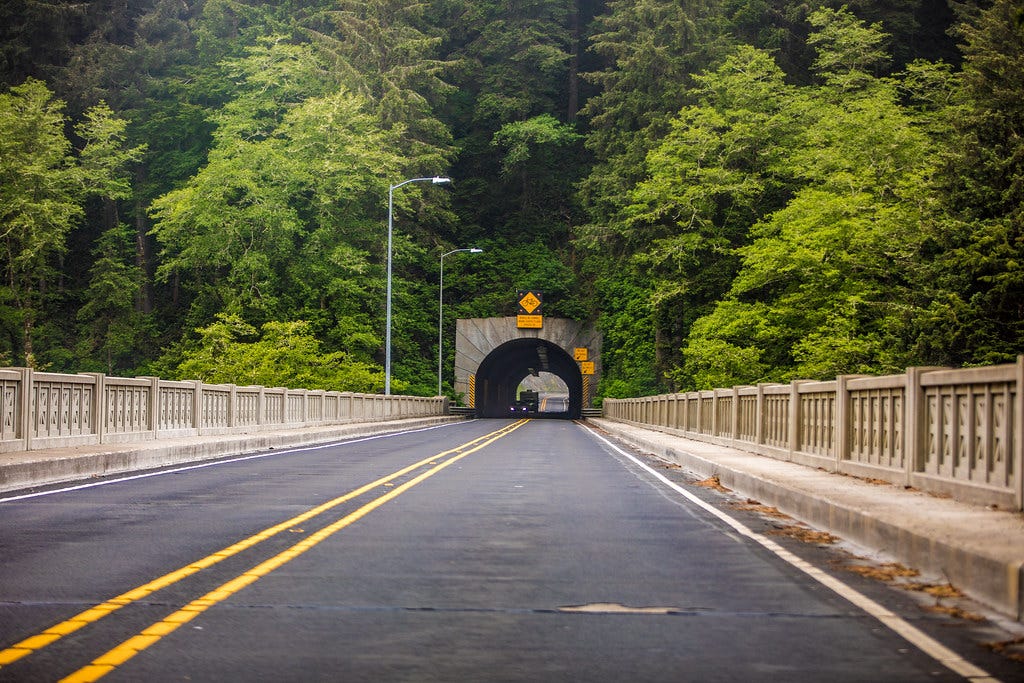Via the East Oregonian: Together Oregonians can create the state we need and want
In an Oregon with legislation tailored to our diverse beliefs, more Oregonians will feel like they have the means and power to put the state back on track.
Kevin Frazier edits The Oregon Way, runs No One Left Offline, and (remotely) attends the UC Berkeley School of Law from Oregon. Read this piece in the East Oregonian here.
The light of the tunnel is there, we just need to turn a corner…

"Abandoned railroad, Oregon" by coltera is licensed under CC BY-NC-SA 2.0
Oregonians don’t like where the state is headed. The most recent poll from DHM research is bleak: there’s been a 64% increase in the percentage of Oregonians that think the state is headed in the wrong direction since April. The rapid jump in disappointment is unsurprising. Amid COVID, conflagrations, cultural clashes, and an economic contraction, it’s almost hard to believe that only 56% of us think we’re headed down the wrong track. Nevertheless, though it’s difficult to see a silver lining during such trying times, the shared sense of dismay can be a unifying factor. We can collectively decide to make this our low point.
A depressed outlook among Oregonians is common to every corner of the state. According to DHM, this outlook is held by 54% of Portland metro area residents, 50% of Willamette Valley residents, and 63% of residents in general. In other words, the urban/rural divide is bridged by a shared desire for the state to do better.
Thankfully, the poll provides a starting point for how to unite Oregonians: responding to the “ongoing protests.” This issue (30%) topped responding to COVID (16%), dealing with the economy (13%), addressing racism (7%), and enacting police reform (5%) when respondents were asked to identify the most important issue for state leaders to address.
Areas of agreement
But how can we collectively respond to an issue as heated and divisive as the protests? After all, the same poll revealed that Oregonians are split on whether to refer to them as riots (55%) or protests (37%).
Whatever you call them, Oregonians are tired of the current approaches to dealing with civil unrest. The polls demonstrate that a plurality of voters in every region strongly disapprove of the protests, generally frown on the response of the Portland Police, and think that our executive leaders have fallen short; 51% percent strongly disapprove of President Trump’s response, followed by 44% strongly disapproving of Mayor Wheeler, and 39% strongly disapproving of Governor Kate Brown.
These stats don’t leave much room for ambiguity: our response to news that we’re on the wrong track shouldn’t be to double down on decades-old solutions. It’s time for new ideas, new solutions, and new leaders to emerge.
Restoring Oregon to the “right track” should take the form of (1) listening to one another and (2) identifying legislative solutions that recognize the diversity of the state. Part of the divide around the protests/riots/incidents of unrest is that we’re simply talking past one another; by focusing on buzzwords like “riot” and “protest” instead of listening for why different Oregonians have different feelings toward the unrest, we’re denying ourselves any hope of locating common ground. That’s why we need to have real conversations with one another -- not Facebook exchanges -- but actual exchanges.
How to get Oregon back on track

"Every Little Thing That Endlessly Confuses Me" by Thomas Hawk is licensed under CC BY-NC 2.0
I share the belief of Adam Davis, Executive Director of Oregon Humanities, that it’s better for challenging, controversial “thoughts to be spoken aloud, than to be simply, maybe quietly, acted on, and better they be spoken to people who will listen and perhaps push back.” (emphasis my own). At a time where many of us are having remote, virtual conversations, we’re perhaps better suited than ever before to connect with individuals from around the state. Imagine the good that could come from having cordial conversations with Oregonians in a community far from your own. Is it idealistic to think these conversations would be civil and calm? Perhaps. Will some of these conversations end poorly? Sadly, yes. But are these the exchanges we need to try to create? Undoubtedly. I welcome and encourage feedback for how we can make these sorts of conversations technically and operationally feasible.
The lessons we’d learn from exchanging with other Oregonians need to be applied to the legislative solutions necessary to respond to our manifold crisis. In other words, legislators should recognize that a large part of why so many Oregonians are united in feeling dismayed is because they feel powerless. Our best statewide solutions will be the ones that assess these polls and recognize that Oregonians see law enforcement differently, have different conceptions of what constitutes a healthy public sphere, and maintain different priorities for their families and neighbors. In an Oregon with legislation tailored to our diverse beliefs, more Oregonians will feel like they have the means and power to put the state back on track.
********************
Discuss this piece at https://www.facebook.com/oregonway



